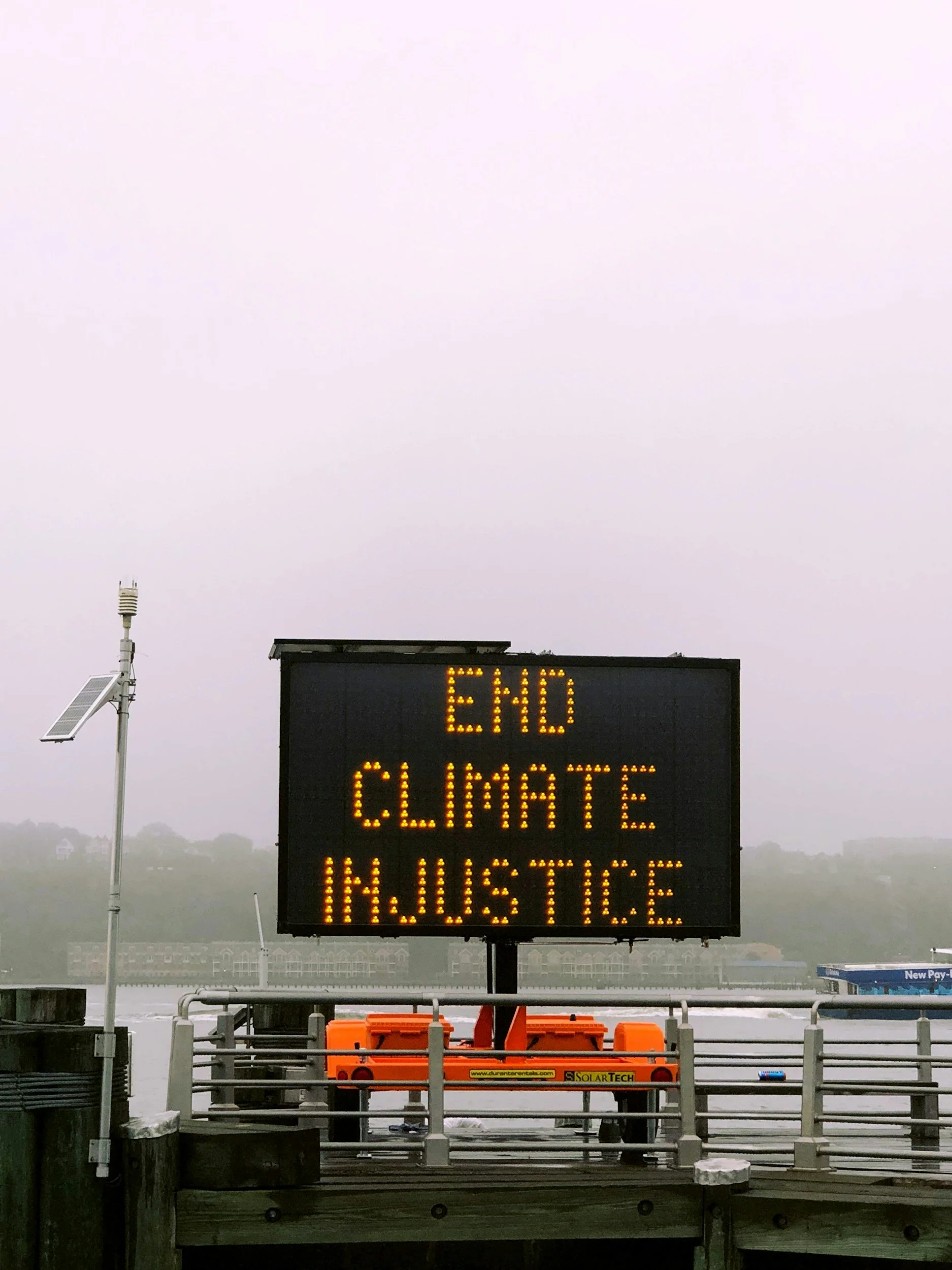Australia vs. The Fossil Free Pacific : 30 Years of Undermining Pacific Climate Leadership
Last month Campaign Republic produced a report for the Fossil Fuel Treaty Initiative on Australia’s role in the Pacific on climate action. With so many excellent climate advocates being quite time poor we thought it might be useful to share an overview version of the report here emphasising its key points.
The Pacific is in a powerful position ahead of COP31 despite bungled Australian bid
High expectations were dashed at COP30 last week with an outcome no one is celebrating. It was weak, vague, and failed to deliver the climate action frontline communities need. And to make matters worse, Australia’s long-running bid to host COP31 ended in a chastening loss to Türkiye.
The Albanese Government bungled the bid, but to focus solely on failure misses the bigger picture. The last-minute compromise still gives the Pacific real power that can help shape a stronger, more just global climate agenda than an Australian-hosted COP ever could. The Pacific’s influence is now built into the heart of COP31, not as a guest, but as a co-architect of its agenda.
Winning slowly on climate change is the same as losing
The exhortation to act on climate change before it’s too late has been heard so often that it is almost cliche. But what does ‘urgent’ mean in a practical sense for climate advocacy organisations and for how they operate?
A global climate accountability wave is breaking
Something big is happening in the fight for climate action.
Around the world, courts are beginning to spell out what governments must do to protect people from climate harm, and what can happen when they don’t.
From the Dutch Caribbean to the Klimaseniorinnen judgment in Europe, and the recent International Court of Justice (ICJ) Advisory Opinion on states’ obligations in respect of climate change, the era of climate accountability may finally be arriving.
Who will call out climate destruction wrapped in progressive language?
After Labor’s first decision to approve Woodside to pollute until 2070, I argued that the climate movement’s softly-softly approach wasn’t working. Criticism has been held back, presumably in the hope of gaining influence, but Labor’s record — from approving coal extensions to ditching its promised federal EPA — suggest the approach isn’t working. I asked then: can we afford three or six more years of muted ambition? Perhaps the question was naive. A more apt question may be “can we afford three or six more years of climate destruction wrapped in progressive language?”
Australia, the Pacific, and the climate moment we cannot waste
This week the Pacific Islands Forum meets in Honiara, Solomon Islands. The timing is unique. Australia is preparing to set its 2035 emissions reduction target. Prime Minister Albanese is days away from meeting Türkiye President Erdogan in a bid to secure COP31 in partnership with the Pacific. Three threads – regional diplomacy, domestic ambition, and global credibility – are woven together in a way we rarely see.
Each alone would be significant. Together, they represent a timely test of Australia’s sincerity and capacity. The Pacific has long provided leadership on climate change. It has never lacked courage. But courage alone will not deliver the emissions reductions needed from developed economies, like Australia. For that, Australia must align its actions with its ambitious language.
Is it true that we only need 3.5% of the population to ‘change the world’?
You only need a small percentage of the population to achieve transformative social change, according to research by Harvard’s Professor Erica Chenoweth and Maria Stephan, whose work into how social movements succeed or fail has returned to the spotlight in recent months among progressive campaigners.
The 3.5% rule quickly gained currency among progressives, with organisations, including Extinction Rebellion and the Center for American Progress, citing Chenoweth’s work as a motivating factor for mass mobilisations as a way to achieve change. But is this really all it takes?
A rules-based order when it’s politically convenient
More than 10 years ago, Australia took Japan to the International Court of Justice over whaling, and won. It was a rare moment when Australia turned to international legal institutions not out of obligation, but as a strategic choice to deliver on a campaign promise. Ending Japan’s whaling program in the Southern Ocean was, rightly, seen as a matter of national pride and environmental protection. It was an overwhelmingly popular decision. One of those increasingly less common occasions where government policy aligns perfectly with public opinion. The decision to act was, in a sense, easy.
The International Court of Justice says failure to tackle climate change risks breaking international law. Australia is on notice
In a historic ruling overnight, the world’s highest court has made it clear: states that fail to take meaningful action on climate change may be breaching international law and could be liable.
A bleak future in the Torres Strait and a test for global climate justice
If a court recognises the harm caused by climate change, but says it can’t compel a government to act, what does that mean for frontline communities?
Culture is power in the Pacific
Culture is at the core of what it means to be human. The climate crisis threatens it. Yet it's also what gives people the strength to fight back. Culture is self determination and resistance. In the Pacific, culture shapes identity, guides navigation, is law, order, governance and forges bonds across generations. While the Pacific is home to a plethora of different cultures, it holds a central position in the lives of communities across the region. Culture can help heal the scars of colonialism, it offers structure, meaning and resilience, and provides a powerful platform for climate leadership.
The fossil fuel industry has captured parts of academia. What does this mean for climate action campaigns?
The fossil fuel industry has actively infiltrated universities, think tanks and other academic bodies in a process of co-option that spans decades. Industry representative bodies and corporations involved in fossil fuel extraction, transport and sales have funded a range of research centres and named faculty chairs at reputable universities across the world. So what does this mean for climate action campaigning?
Big Oil made a videogame. Why isn’t there one for renewables?
When I came across Ketan Joshi's post about Energy Town, a strategy game developed by Norwegian oil giant Equinor, that lets kids build their own future city, it struck me as both sinister and oddly inspiring.
Don’t Debunk – Reframe: How to tackle (climate) myths without reinforcing them
Communications professionals face a growing challenge: more and more people are making decisions based on false or misleading information. In response, well-meaning organisations sometimes try to “bust myths”, hoping that facts will trump feelings. But this approach can backfire.
Concern isn’t power: Rethinking climate communications strategy for the next decade
Climate communications shouldn’t just reflect where people are. They should help build the conditions for change. That involves risk, clarity, and a willingness to speak to the hard parts, not just the hopeful ones.
When nice isn’t working: Rethinking climate advocacy under a Labor government
After Labor’s recent election win, many in the climate and environment space breathed a sigh of relief. The Coalition and its nuclear fantasy were resoundingly rejected. In its place, a government that at least says the right things about climate change, even if its policies don’t match the rhetoric. For some, that alone felt like progress.
But when viewed through the old climate adage that winning slowly is actually losing, can we afford another three, or six, years of muted ambition?
Carbon offsets have always been a scam
A critical court case last week showed yet again how we have to tell the truth on climate action, even when it’s hard to take.
Why progressive campaigns need to stop focusing only on what’s broken
How many times have you read something along the lines of: “This is our last chance to avoid climate chaos”? Probably more times than you can count. It’s become a climate messaging cliche. It's urgent, emotional, and designed to jolt people into action. But the more we hear it, the less it moves us. When the “last chance" comes quarterly, the phrase stops hitting like an alarm and blends into the background noise.
A Vote for Stability in an Unstable World: the 2025 Election Explained
With the results of the Australian federal election now largely settled, it seems clear that Australians cast a vote for stability in an increasingly unstable world by returning the Albanese Labor government with an enlarged majority of at least 90 seats.
Here’s what matters from the results as they fell into place.
Can a minority government deliver on climate?
As talk of a hung parliament grows louder, it’s worth asking: can a minority government deliver meaningful climate action?
History offers some important lessons, both for what’s possible, and what can be undone.




















